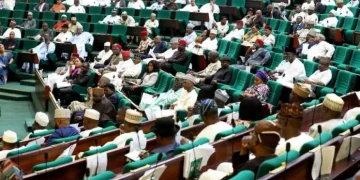A civil society organisation (CSO), Accountability Lab Nigeria has called for the harmonisation of a comprehensive Code of Conduct, National Ethics and Integrity Policy for public servants.
The efforts according to Accountability Lab were aimed at promoting transparency, integrity, and trustworthiness among those entrusted with public responsibilities.
Addressing newsmen during a press briefing in Abuja, country director, Accountability Lab, Friday Odeh, said that a unified code of conduct will help establish a common standard for ethical behaviour, curb corruption, and enhance public trust.
He said, “The need for proper ethical standards and behaviour in business and government transactions remains a significant obstacle to Nigeria’s pursuit of sustainable development. Ethical governance is pivotal for addressing this issue and enhancing public trust.
“This policy brief presents a strategic perspective on strengthening ethics and integrity in Nigeria by harmonising the Nigerian Code of Conduct for public servants and the National Ethics and Integrity Policy. These policies play crucial roles in shaping the conduct of both public officials and citizens.”
Odeh said by leveraging the strengths of both policies, Nigeria can create an environment that promotes accountability, integrity, and responsible leadership.
He emphasised the complementary nature of these policies and proposed a forward-looking approach to their seamless integration to enhance public confidence.
“Nigeria’s governance is marred by a crisis that undermines ethical values, positive behaviours, and societal norms essential for effective functioning. Many politicians and public officials in Nigeria lack ethical and moral standards, engaging in practices such as abuse of office, nepotism, conflicts of interest, and misuse of government information.
“The 2022 Ibrahim Index of African Governance ranks Nigeria 30th out of 54 African countries. Widespread lack of accountability, unethical behaviour and corruption have normalized, reflecting a crisis of ethics in public services. The Global Corruption Barometer highlights that 43 per cent of Nigerians perceive increased corruption over the past year.”
He said enforcing ethical standards in government is vital for preventing waste and abuse and prioritising public interest over private interest.










